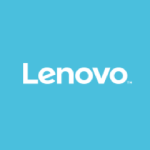From a management standpoint of the arrays, they work really well. They handle a lot of data and, overall, it lowers the complexity of our storage infrastructure. We've been able to consolidate down to a single platform which meets all of our demands, anywhere from our advanced meter systems to our customer information system.
When we started using 3PAR what we liked was the simplicity of the product. We needed a higher performance storage and, in our support model, we needed to keep the simplicity of the storage architecture, keep it as clean and as manageable as we could.
We have seen one area, where we have highly virtualized Solaris instances, where we're getting into the queue depth, so we probably need to do some work in the queue-depth area in the arrays. I'm not sure if its specific to Solaris, because we haven't encountered it on other platforms but, then again, on some of our largest Solaris frames, we are running several hundred virtual containers and we see the queue-depth issue there.
More than five years.
It has been stable. It has been very reliable. I have no problems around it.
As we transform and we're starting to move data, much more data, we're looking at the scalability. I don't have any indicators that it will not scale, but there is a lot of analysis we have to do. We're doing modeling of that data right now to see what decisions we will make in 2019. I am assuming we will maintain at least some 3PAR, but we may have to compliment it with something else, based on the demands we have around our data.
From my experience, tech support has been good. I'm not directly interacting with support due to my role but the feedback I've received has been good.
This is a question better answered by the guys who actually support it, but it's my understanding that the upgrade process is pretty seamless. They scheduled it over a weekend, they rolled the upgrade through, and it works pretty well. Occasionally, there are glitches they need to work through but, from what I have observed, they're minor.
The process doesn't drag on. It's just planning, scheduling it, change tickets go in, and then they run it. It's a process that pretty much takes under a day. And then, after implementing, it's a matter of watching it to make sure everything is smooth after the upgrade finishes.














Patrick - thanks for the review. I believe that HP 3PAR is a superior storage array than EMC. I'm glad to read reviews like yours that confirm it. For anyone that wants to dive deeper, here's a link to many, many 3PAR articles on my blog: hpstorage.me